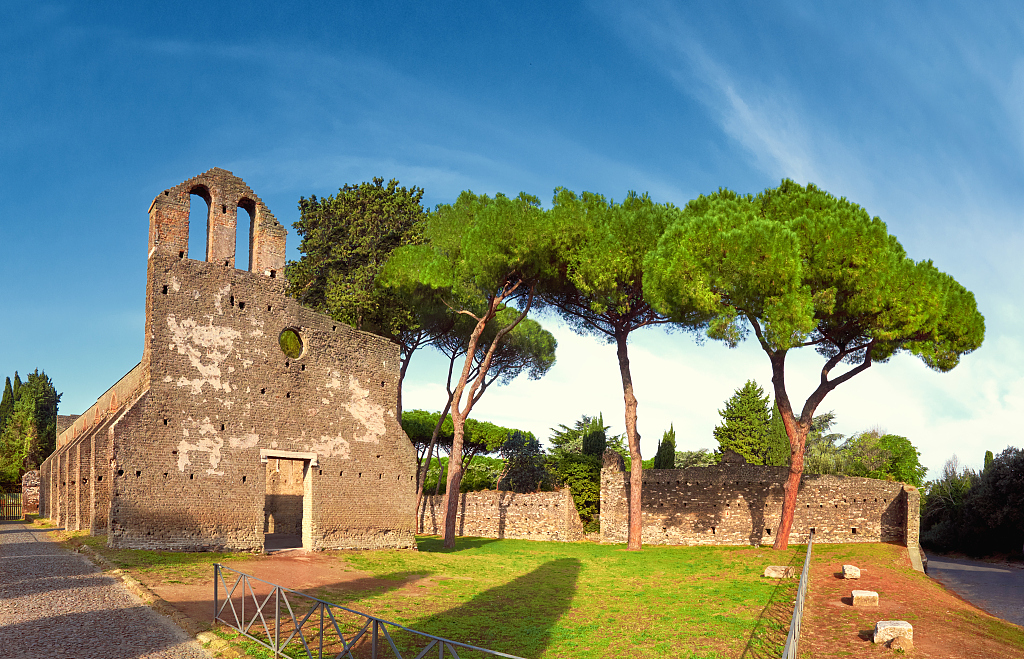

Appian Way
The Appian Way, known as the queen of all roads, is a paved road of more than 500 kilometers, averaging six meters in width and slightly convex in surface in order to facilitate good drainage.
Named after Roman statesman Appius Claudius Caecus, also the initiator of the walkway, the road allowed trade and access to the east, specifically Greece. It might be most famous for its role in the slave revolt led by Spartacus in 73 BC. Today, it is one of the best sites to enjoy a sunny Italian day and step back in time with many significant tombs and architecture along its sides.
Both the Grand Canal and the Appian Way have thousands years of history; however, their comprehensive renovation and promotion work only started not long ago. Still, after years of efforts, both sides have made great achievements.
China has taken a series of concrete measures to protect and develop the Grand Canal and its surrounding areas, with the construction of cultural and ecological parks along the canal as the most important element of these conservation policies. China's first Grand Canal-themed museum – the Yangzhou China Grand Canal Museum located in Yangzhou's Sanwan Park – also opened to the public two years ago with over 10,000 exhibits, making it the best collection showcasing the massive scale of the canal and the evolution of boats that sailed through it in bygone years.
The first 16 kilometers of the Appian Way has been preserved as a regional park which has been under protection since 1988. It is famous for its ancient treasures, ruins, archaeological remains, old churches and catacombs. Some other sections of the Appian Way that need to be secured for safe traveling have been included in a national plan by Italy's Ministry of Culture years ago in a bid to "make this extraordinary road, made of history, civilization, culture and archaeology, alive again."